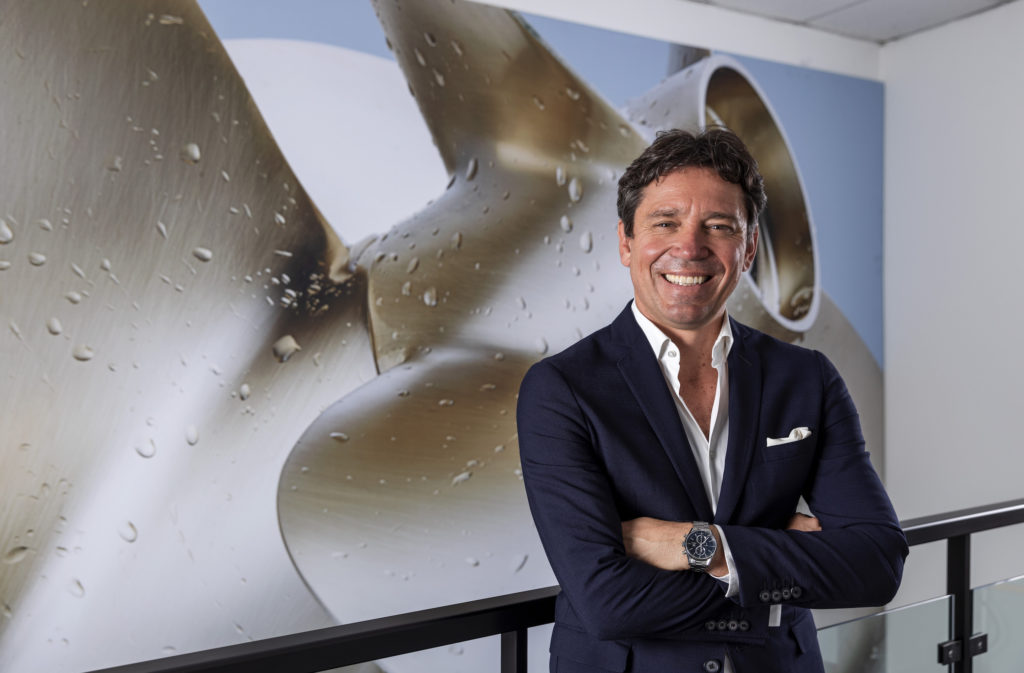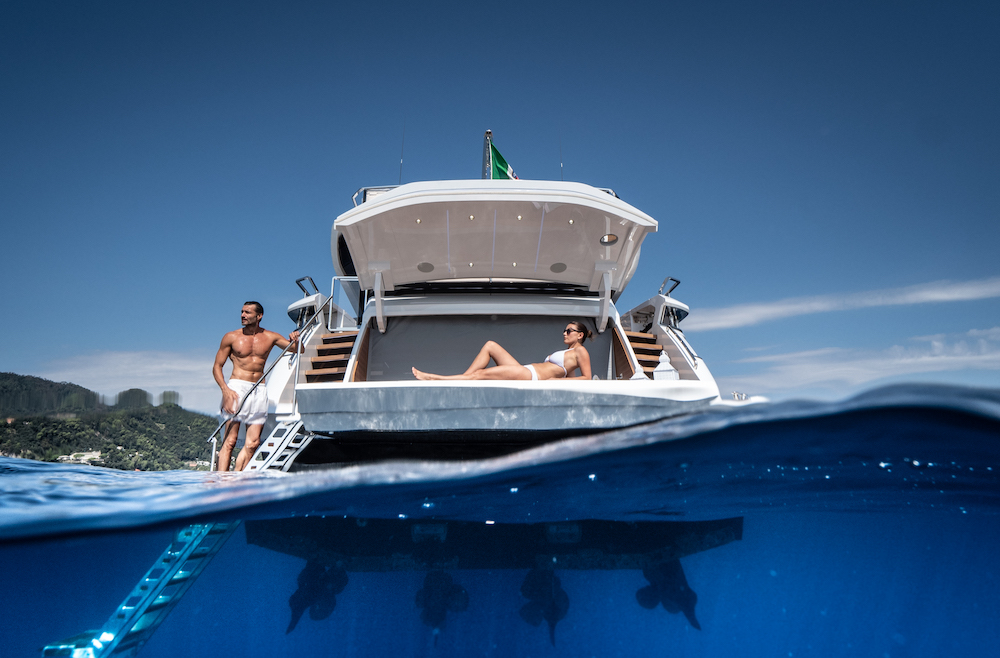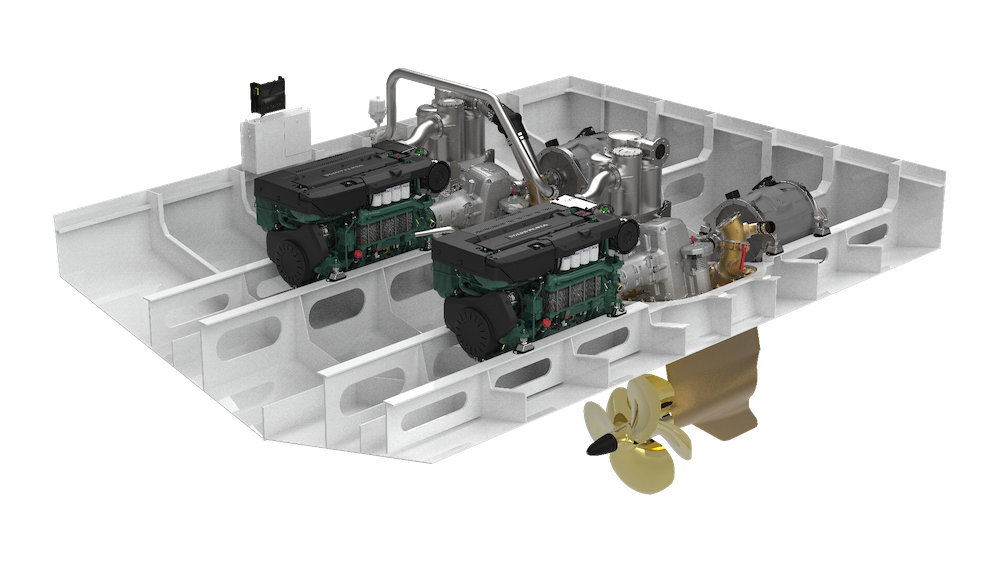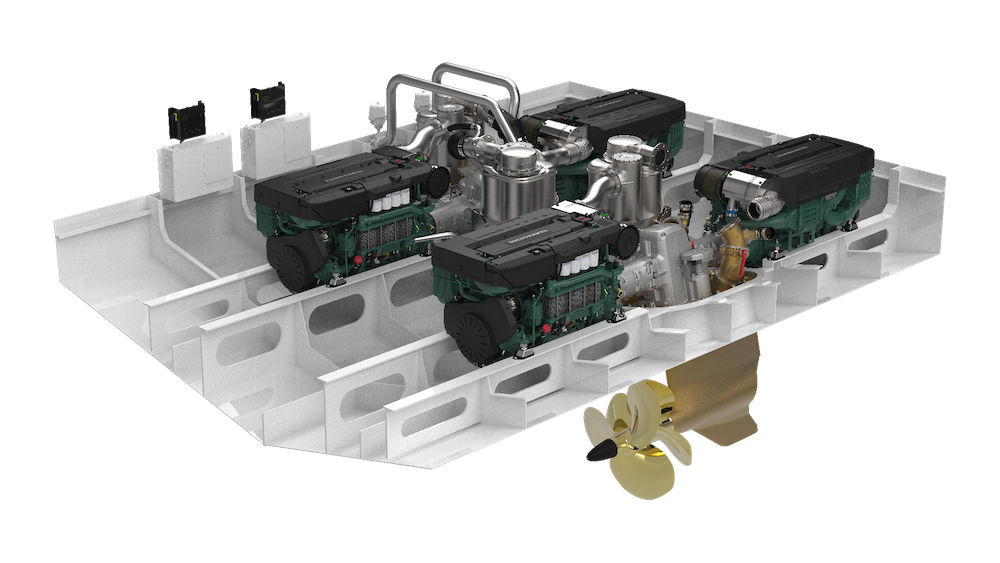It’s been in the air for a while but lacked official confirmation. However, on 22 May came the announcement of a new arrival that will mark a turning point for the nautical industry. The entry onto the scene of the new Volvo Penta IPS 40 will have a significant impact on the large yacht sector, too, meaning those with a length up to 55 metres and above. (Here all our posts about Volvo Penta)

Debut in 2025
The official debut is scheduled for 2025. Meanwhile, the Swedish company has revealed the details of the new propulsion system through the figure of Nicola Pomi, Global Yacht and Superyacht director for Volvo Penta. “The new system offers the IPS principle on a larger scale. To be precise, every pod will be linked to a pair of drive units that at the moment will be diesel powered but will eventually utilise other power sources like electrical energy”, says Pomi.

Volvo Penta IPS40, the watchword is versatility
Versatility is the concept driving the system’s success. However, other factors will also help make the IPS40 formula a game-changer. “At the moment there are no similar solutions in the sector covering superyachts up to 55 metres and above. The benefits provided by these units include a more compact design, so they take up less space, and the fact that they have been developed to surpass the targets set by IMO Tier III standards”, Pomi continues.

There is, though, another key factor – efficiency. “Being able to spread the power across four engines means it’s possible to manage thrust to match requirements. If, for example, you want sail at 10 knots there’s no need for all four engines to be operating, two is enough. As a result, the engines’ lifecycle will benefit significantly, resulting in reduced maintenance costs, fuel consumption and emissions”.

Volvo Penta IPS, an integrated system
The new system promises to provide an innovative energy management solution. “Volvo Penta’s aim is to provide an integrated system from helm to prop on larger yachts. The most important focus of the R&D effort was developing an architecture that now manage the energy from the IC engines efficiently and only when needed will do the same tomorrow with a parallel hybrid or alternative energy sources like full-electric, hydrogen or fuel cells”, Pomi adds.

This means we have to work more synergistically with the yards, involving them in the development process so we can identify the real necessities and the various usage profiles. This approach promises for the first time to change the rules of the game in the maxi-yacht sector, too.

This is nothing new for Volvo Penta, which had already adopted this criterion when it presented the IPS for the first time eighteen years ago. “The engine room used to be made big enough to house the engines. It was a technical space with the same dimensions. It’s different now – being able to rely on electrical energy sources means rethinking the dimensions also in terms of the weight, for example, of the batteries.

That’s why now more than ever broadening our horizons and also entering into a dialogue with end clients to discover their needs and how they want to use their yacht”, says Pomi. There’s no lack of options available. The industry is experiencing an important transition with a much wider range of solutions than before.

Volvo Penta’s choices for the new IPS40
That’s the future. As for the present, in Pomi’s words, “Without waiting to see what the scenarios will be and how choices will develop, Volvo Penta engines are already prepared to function with the new bio-fuels and HVOs”. In short, the IPS is ready to inaugurate a new era in the yacht-building industry. The Swedish company’s far-sightedness is evident from the fact that the project was launched six years ago, and its arrival on the market is backed by hundreds of hours spent on the design and engineering of the system.

Before its 2025 debut the IPS 40 will have undergone a series of tests on a 37-metre,144 GT ferry that Volvo Penta has acquired and on which the company has installed the propulsion system. In short, the future is drawing near and promises to be truly exciting.
Matteo Zaccagnino





